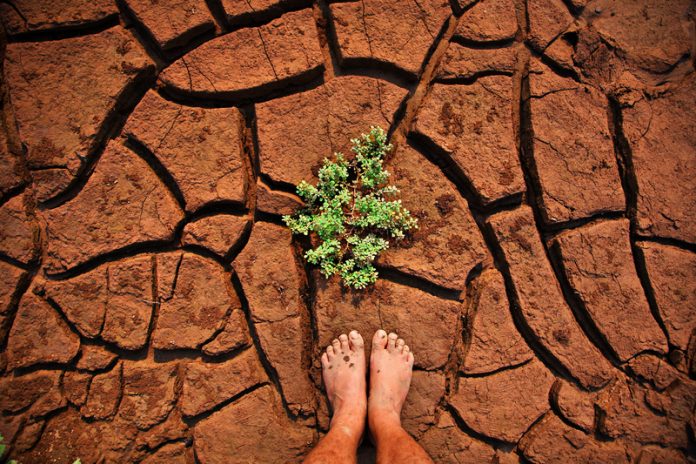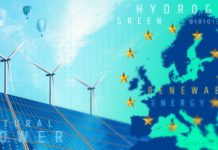Commissioner Phil Hogan shares his remarks on World Food Day 2018 at the Civil Dialogue Group Discussion – Global Food Security, Sustainable Development and Relations with Africa on 16th October 2018, where he charts global efforts to fight hunger and feed the planet in a sustainable way
World Food Day is an important opportunity to take stock of where we stand in our global efforts to fight hunger and feed the planet in a sustainable way. This challenge is huge, but we are finding more and more solutions. This is truly one of those situations where you can say we are all in the same boat.
Fighting hunger and fighting climate change requires everyone to do their part, therefore we cannot say to our counterparts: “your end of the boat is sinking”.
If we take a step back from the bureaucracy and politics surrounding it, food, in essence, represents both bodily and cultural sustenance, and the struggle to eliminate hunger is ultimately about saving individual human lives from being ended prematurely by a lack of nutrition.
In this sense, World Food Day is the right moment to recall the UN Sustainable Development Goals, and particularly Goal number 2: ‘Zero Hunger’. Those two short words encompass a bold, but necessary ambition.
During the reference period covered by the previous Millennium Development Goals, from 1990 to 2015, the percentage of the world’s population suffering from undernutrition was almost halved, from close to 20% to just above 10% – and this was achieved while the world’s population grew by 1 billion.
But recent data provided by FAO show an alarming trend. The number of people suffering from undernourishment is increasing again. The message is clear: we need to step up our efforts. The director of the Brussels office of FAO will give us further details on this. Europe is not immune to food insecurity: mass scale hunger took place on our continent within living memory.
We established the CAP to fight food insecurity in post-war Europe, and it has served our continent well for the past 60 years. Today, the policy has a far more global outlook and it is more closely aligned to other important EU policies, such as development and regional cooperation.
In this regard, I think it is fair to say that the CAP has come a long way. Today, the policy balances the interests and needs of a complex matrix of farmers and consumers in Europe, as well as food growers, consumers and citizens concerned about the environment and the welfare of animals, and last but not least our trading partners abroad, including developing countries.
It is a well-known fact that the European agricultural sector is one of the world’s leading producers of food, and the EU is the world’s top agricultural exporter and importer. We have extremely favourable trading conditions for countries across the developing world.
We are, in particular, the world’s largest importer of agricultural products from Least Developed Countries, to whom the EU gives duty-free and quota-free access, while granting unilateral concessions to developing countries in general.
Our trade agreements for development, the Economic Partnership Agreements, are calibrated to allow sufficient margin of manoeuvre for partner countries to protect their sensitive agricultural products, either by excluding them entirely or by allowing robust safeguards that can be used to guard against sudden increases in imports.
The EU also promotes food security and food quality, both at home and abroad. Food security, ultimately, means more than just ingesting calories, but rather ready access to a healthy variety of quality nutrients.
In terms of sustainability, the environmental safeguards built into EU food and farming policy are already robust, and are in the process of being strengthened further in our legislative proposal for the future CAP.
Already today, 30% of the direct payments to European food producers (whose incomes still lag far behind the average of other economic sectors) and nearly half of the EU budget for rural development are spent on measures benefiting the environment or fighting climate change.
The EU is also active abroad and lends vigorous support to food security and responsible investment in sustainable agriculture, particularly in Africa, where our focus is on creating decent rural employment, ensuring that farming remains a viable, even attractive way of life for the huge aspiring generation of young Africans.
To this end, the EU promotes rural and agricultural development, for instance by supporting investment in African farms and agri-business, programmes to increase compliance with sanitary and phytosanitary standards, vocational training.
And the African Union strategy for Geographical Indications. EU-funded research and innovation programmes also benefit developing countries, notably via participation in the Horizon 2020 Programme.
As you have no doubt all noticed from Commission President Juncker’s State of the Union address, the EU’s relationship with Africa will take on even more importance in the coming years. The Communication on the Alliance with Africa calls for a paradigm shift, from framing our southern neighbour as a recipient of aid to working together as equal partners in mutually beneficial development.
Agriculture is already following up on this commitment. An important and highly visible initiative is the Task Force for Rural Africa, which I launched in May 2018. This group of African and European experts has already met several times in Brussels and once in Kigali, Rwanda, and serves as a forum to exchange and transfer insights, identify key trends, find new solutions, as well as map policies what work well and should be reinforced.
I wanted to emphasise a key message that this day, World Food Day, symbolises. The challenges ahead are great and global in nature, therefore our best hope of tackling them is to do so multilaterally.
As I mentioned earlier, we’re all in this ‘boat’ together. So, if we want to continue sailing smoothly we must also work together. Ensuring that in 2030 there really is “zero hunger” on the planet: this is the challenge that World Food Day reminds us of every year.
The family of international organisations involved in the politics and economics of food, such as the FAO, the OECD, and indeed the EU, are the best placed global players to assume a leading role in future-proofing the world food system. To master this challenge, we must stand and work together. Thank you.
This article is based remarks given by Phil Hogan, Commissioner for Agriculture & Rural Development on World Food Day 2018, delivered at Civil Dialogue Group Discussion – “Global Food Security, Sustainable Development and Relations with Africa.”
Phil Hogan
Commissioner for Agriculture & Rural Development
European Commission
Tel: +32 2 299 96 96
https://ec.europa.eu/commission/commissioners/2014-2019/hogan_en











